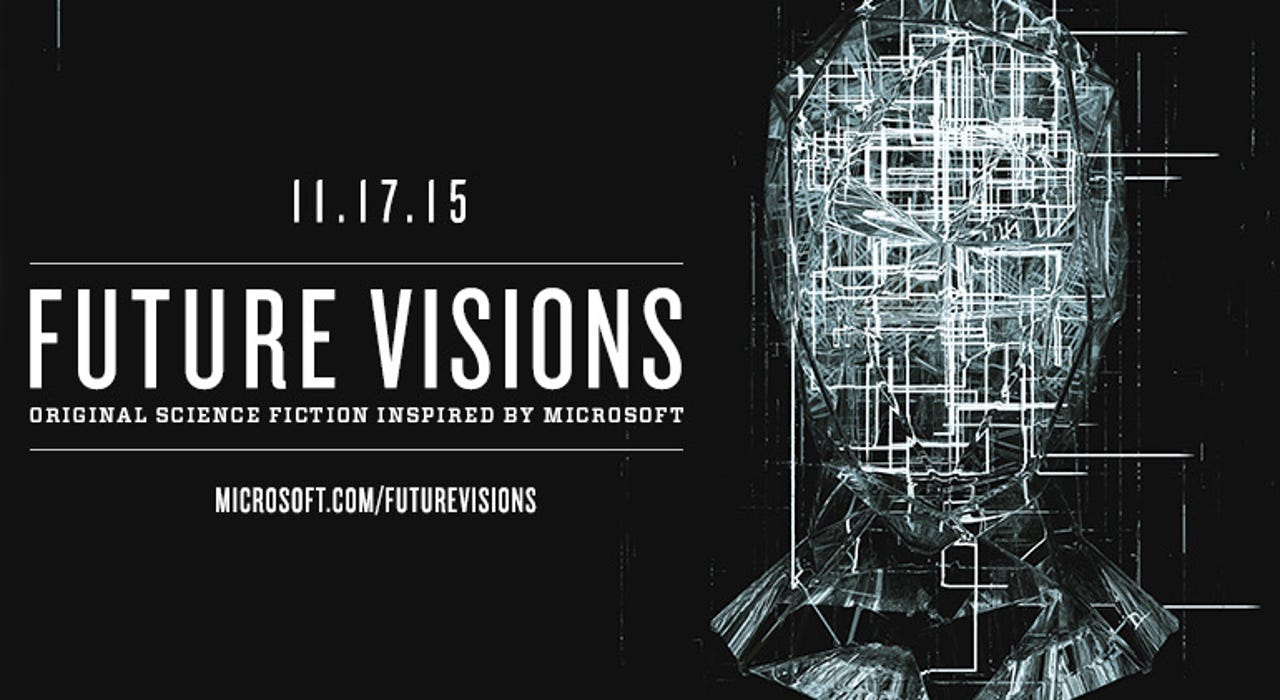Future Visions, book review: Tales from the research lab


But that's what Microsoft Research did, and the result is a free short story collection, Future Visions: Original Science Fiction Stories Inspired by Microsoft, which is downloadable today from your e-bookstore of choice (or, if you prefer paper, as a limited edition hardcover). It's a fascinating read, from a group of writers at the top of their game, all delivering stories inspired by current work at Microsoft Research. The relationship between science and science fiction is a long and fruitful one, each inspiring the other, each pushing the world forward into a choice of futures, and this book continues that tradition.
In Future Visions we see a selection of those futures, in a collection of unexpected outcomes from basic research. The stories touch on new computer science themes, from machine learning and translation, to quantum computing and the quantified self. Each story is illustrated with a computer-generated image -- semi-abstract pictures inspired by the stories, taking us full circle back into the world of computer science.
The stories
- Seanan McGuire / Hello, Hello
McGuire brings us a look at the possible future of machine translation, exploring a bridge between sign language and the spoken word using machine learning -- and what happens when an unexpected participant joins the conversation. Translation technologies, like those being built into Skype, are about breaking down barriers between people. But what if we break down more than just those barriers?
- Greg Bear / The Machine Starts
Bear revisits the quantum computing themes he addressed in his novella Heads, this time looking at modern quantum computing in light of the many-worlds interpretation of quantum physics. The result is a story that's haunting and more than a little scary.
- Elizabeth Bear / Skin In The Game
The quantified self takes a trip into shared emotional states, adding more sensors to the wearable instruments that are at the heart of a musician's life. But capturing emotions is more than just business, more than art, no matter how you frame it. Echoing William Gibson's pioneering cyberpunk short story The Winter Market, Bear shows a world just the other side of tomorrow.
- Nancy Kress / Machine Learning
What happens if we reflect back what we learn about teaching machines on ourselves? Kress explores a research project that uses machine learning to teach, finding the optimum strategy for each child -- while a researcher struggles to rebuild his life. A fascinating exploration of grief, and of learning, both by humans and machines. One of the best SF shorts of the year.
- Jack McDevitt / Riding with the Duke
Technology that puts you in a movie helps a failed physicist come to terms with being a teacher -- and by filling in for John Wayne (and others) he gets the confidence he needs to stand up in front of a classroom. McDevitt shows how technology can help us become the people we want to become.
- Blue Delliquanti and Michelle Rosenthal / A Cop's Eye
This is a graphic short about a police officer teamed with an AI virtual assistant. It's an intriguing look at how a mix of technologies can produce a more human model of law enforcement, and at how technologies can support a runaway. The result is a deeply moving story.
- Robert J Sawyer / Looking For Gordo
Artificial intelligence meets METI in one of Sawyer's courtroom SF dramas. An AI simulation of the intelligence that sent its entire web to Earth (found by data mining the SETI signal database) testifies. Should we do the same? Sawyer tells a fascinating story, with a believable AI at the heart of the dilemma.
- David Brin / The Tell
In Brin's short thriller, scenario planning and skepticism make prediction an existential threat. A magician and a spy infiltrate a Vegas casino that may have made a breakthrough in crowdsourced predictions, giving us an intriguing deconstruction (and an updating) of John Brunner's influential SF novel The Shockwave Rider. Here Brin helps us read the unconscious, guiding the road to tomorrow -- making it open, not closing it in. The story extends Brin's recurring theme of the enlightenment being an opening out of society.
- Ann Leckie / Another Word for World
Here Leckie returns to the theme of language that's at the heart of her award-winning Ancillary trilogy. A diplomat trying to negotiate on a frontier world comes to discover that the roots of the translation tools she's using may not be entirely accurate. As Leckie explores the limits of machine translation and emotional software, we see that while software can help, over-reliance on it can be as much of a problem as having no translation at all. The result is a compelling story, reminiscent of Ursula K Le Guin and CJ Cherryh.
Welcome addition
Microsoft Research's choice of writers is an excellent one, and the nine stories are compelling and well written -- with the contributions from Kress, Brin and Leckie, in particular, likely to rank among the best science fiction short stories published this year. Future Visions is a welcome addition to any SF library, offering a look into the future that tomorrow's computer science is building.